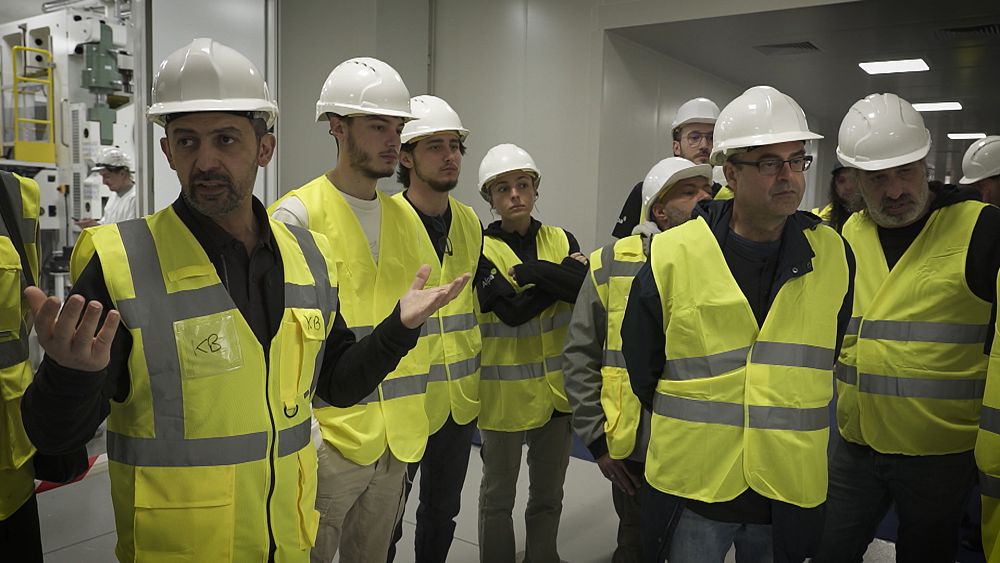Boosting Europe’s workforce to keep pace with net zero energy goals

In this latest episode of Business Planet, we speak to those on Europe’s green skills front line to find out how the EU, companies and students are trying to close the gap between the bloc’s ambitious green energy projects and the lack of trained people to get the jobs done.
Europe’s push towards a green energy transition is facing significant challenges posed by a huge shortage of skilled people in net-zero industries like batteries, solar and wind.
The European Commission estimates the battery sector alone will need another 800,000 people to be trained or reskilled by just 2025.
As such, the bloc is investing millions in specialised academies in a bid to address this workforce gap.
Electric batteries: ‘A new adventure’ for Europe
The French city of Grenoble was named a European Green Capital in 2022 and is home to one of Europe’s first battery academies – a partnership between companies including local battery manufacturer Verkor, and several other local institutions and laboratories.
“Batteries are brand new, even in Grenoble or France. I’m young so I thought why not throw myself into something new, something which could only bring me good things in the future,” said Safila Morales, a student at the Grenoble battery academy.
“In France, it’s a new adventure for us. I think that electricity, especially electric batteries, is the future for all of us,” fellow student, Safak Durmaz, told Business Planet.
Three battery gigafactories are being built in the north of France, including Verkor’s new plant near Dunkerque, which will supply batteries for Renault’s new Alpine vehicle range.
“Today the knowledge – especially in making batteries – is mainly based in Asia, and in the USA,” said Emilie Rondet, project manager at the École de la Batterie. “We lack these skills because the transition is just beginning. So in order for European, [and] French companies to set themselves up in this area, we need to train people with this knowledge and skills.”
“The Battery School is a networked school which aims to train young students who are pursuing their studies or who are even at the very beginning as well as employees who need to reskill, for example, from working with thermal vehicles to electric ones,” Emilie Rondet added.
Upskilling and reskilling for a greener future
The European Commission launched the European Battery Alliance Academy in 2021 with a €10 million grant, and they are being rolled out across the continent.
European Commission president Ursula von de Leyen designated 2023 as the European Year of Skills. The Commission plans to establish Net Zero Industry academies and is investing an initial €5.5 million.
Companies need to fill a wide range of jobs – installing heat pumps and solar panels, for example, but there is also a need for ICT and sustainability skills.
In the French city of Lyon, ITEN makes rechargeable micro-batteries, tiny ultra-powerful batteries that are used in numerous devices from smart payment cards to medical implants.
“Technology evolves very, very quickly and it is fundamental for us to have the skills that evolve in pace with these needs,” explained Fabien Gaben, the CEO of ITEN.
“So at ITEN, we have developed our own manufacturing processes, our products, and we have recruited experts in each of our trades that we have trained, we work a lot with laboratories, the CNRS, and different universities which also help us to develop and train our people in these completely new skills.”
While Europe lags behind China in some Net Zero areas, Fabien Gaben believes it has the edge when it comes to sustainability.
“All these new industries in Europe will integrate sustainable design issues and that is going to allow us to have an advantage in relation to industries on other continents.”
Source: Euro News














